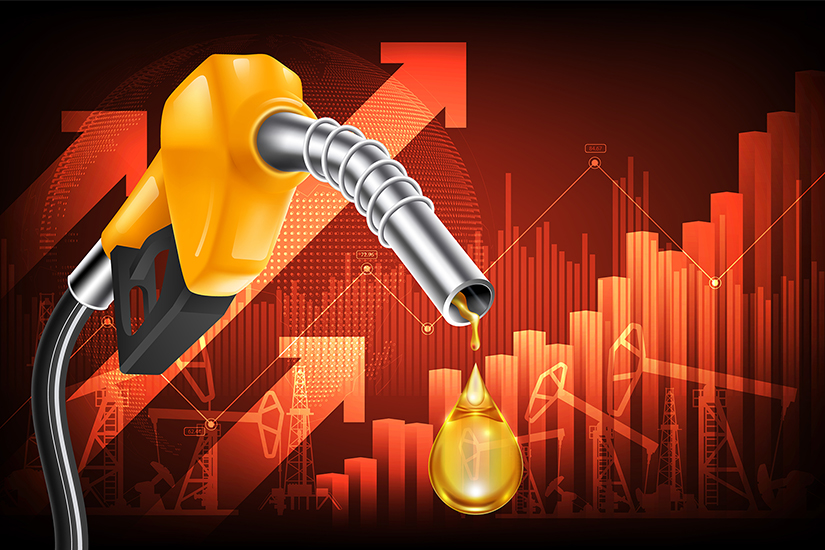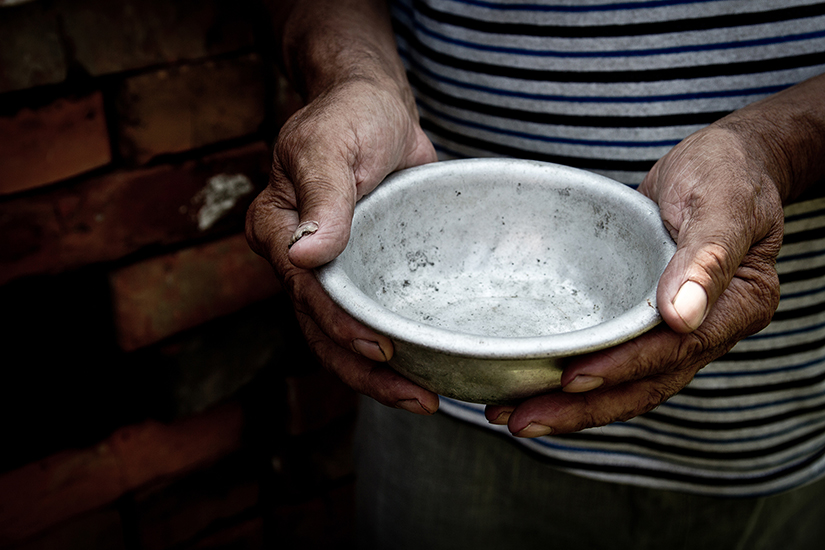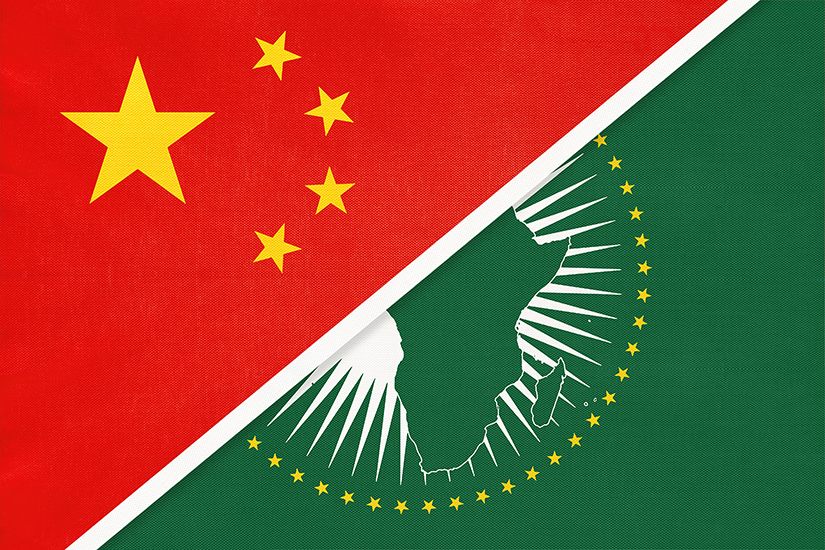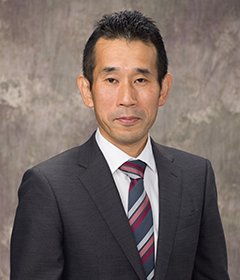The power balance of foreign countries in relation to Africa has changed in recent years, as Africa has diverged from the West. This shift is further accelerated by Russia's invasion of Ukraine. What explains the emergence of this change? This paper will illustrate what is going on in Africa from African Perspectives as well as consider how Japan and the West at large should respond.
Two crises brought about by the invasion of Ukraine: Energy Crisis and Food Crisis
The impact of Russia’s invasion in Ukraine may appear disconnected from Africa, as Africa is far from the region in concern. In reality, however, Africa is severely affected by this event. Among others, an energy crisis and a food crisis are two major consequences of the war that affect Africa.
With respect to the energy crisis, the relation between the West and Russia has deteriorated since Russia’s invasion of Ukraine. Europe’s economy in particular has been destabilized after it announced a policy of restricting natural gas imports from Russia without having secured alternative sources. Immediately after Russia’s announcement that it would reduce its gas supply to Europe by 60%, the price of natural gas in Europe rose by 70%[1] and doubled in the U.S. compared to the beginning of the year[2]. The price of oil has similarly increased throughout the world. While oil-producing countries in the Middle East, such as Saudi Arabia, are expected to experience an economic boom this year[3], Africa is expected to face an energy crisis, even in oil-producing countries[4]. Nigeria, for example, is expected be trapped in a severe energy crisis over the next 12 to 18 months, despite the fact that it is a major oil-producing country. A primary reason for this includes the fact that most oil-producing countries in Africa do not have sufficient refinery infrastructure, meaning they import refined oil in exchange for exporting crude oil. Although the price of crude oil has increased, the price of refined oil has also increased, resulting in a trade deficit. The soaring fuel price directly harms the national economy and pushes people into severe conditions.

Of much greater concern is the food crisis. This multi-faceted situation will be explored in greater detail below.
In Africa, climate change, conflict, and food crises are deeply intertwined[5]. The Sahara Desert, which covers northern Africa, has moved 100 km southward over the past 65 years[6]. This has resulted in towns and villages at the southern edge of the Desert being swallowed by the wave of desertification at a speed of 15km per decade. In those areas, temperatures rise abnormally, and water resources are rapidly depleted. This causes serious damages to agricultural products, and the change of grass fields forces herders to alter their migration routes[7]. In other words, both farmers and herders have to change their life behaviors and are obliged to move to new settlements. In newly settled areas, rapid population growth leads to overuse of water and wood resources, deteriorating the natural environment and causing floods. Rapid demographic changes become a trigger for conflict, raising tensions and clashes between original inhabitants and new settlers. Mali, Burkina Faso, Niger, northern Nigeria, the Lake Chad Basin and Sudan are located on the southern edge of Sahara Desert. Those countries and regions are either suffering from conflicts or are at high risk of conflict occurring. Although the root-causes of conflict vary from country to country, climate change is an essential factor in causing outbreaks of conflict.
Food crises have a strong causal link with climate change and conflict. Climate change disturbs sound agricultural harvests, and conflict contributes to the reduction of harvests by making stable farming impossible. In addition, due to conflict, transportation and supply chains of food and other daily commodities are hampered. Public services such as water supply and health services and education are also disturbed. Humanitarian Assistance is necessary in such cases, but aid workers may not have access due to security concerns, leaving people behind and exposing them directly to danger and starvation.
In addition to climate change and conflict, since 2019, COVID-19 has had a negative impact on food production and its supply. According to the Global Hunger Index 2021, the percentage of malnourished people in the world had constantly decreased since 2000, but it turned upward in 2020[8]. This report alerts that severe hunger is expected in Somalia, Central African Republic, Chad, Democratic Republic of Congo, and Madagascar in 2022.
It was under this context that Russia's invasion of Ukraine began. Both Russia and Ukraine are among the world's major producers of grain and fertilizers, accounting for 28% of global wheat trade[9]. Russia's invasion has severely damaged the production and the distribution system of grain and fertilizers, resulting in the risk of food crisis to spread throughout the world[10].
Sub-Saharan Africa is highly dependent on Russia and Ukraine for wheat imports, with both countries accounting for one-third of wheat imports to Africa and more than half to Senegal, Burkina Faso, DRC, and Madagascar[11]. Declines in imports from both countries have caused a sharp rise in grain and fertilizer prices, confusing markets and threatening people's livelihoods.
This year, the most serious drought in 40-years is forecasted in Somalia, where 7.1 million people, or half of the population, will be affected by acute food crisis[12]. The food crisis is not limited to Somalia. The Food and Agriculture Organization (FAO) and the World Food Program (WFP) warn that hunger could spread in 46 countries and affect 49 million people by September[13].
The global food crisis causes a serious dilemma to the front line of humanitarian assistance. According to WFP, a severe food crisis has affected 7.74 million people, 60% of the population in South Sudan, between June and August 2022. Nevertheless, due to global food shortages and increased humanitarian assistance needs throughout the world, WFP has had to reduce its food assistance to one-third of its original plan set at the beginning of the year[14].

The West’s actions and Africa’s unamused response
How have Western countries responded to the crisis caused by the Russian invasion of Ukraine, and how do African countries perceive it? There are at least three distinctive features that can be identified.
First, African people feel that Western countries take self-centered measures to energy security. In May, German Chancellor Scholz visited Senegal and South Africa, securing energy resources and strengthening a stable supply system[15]. U.S. President Biden visited Saudi Arabia on July 15. Although Saudi Arabia is a country with various humanitarian concerns for the U.S., the energy security has seemingly pushed these issues aside[16].
In the arena of international conferences on Climate Change, a division has long existed between the West and the rest: the West demands all countries curb fossil fuel use, while developing countries have no choice but to depend on fossil fuels for development. Developing countries have insisted that developed countries impede the “right to develop” of developing countries by demanding them to stop using fossil fuels, despite the fact that developing countries have used fossil fuels abundantly for their own development. In this context, developing countries view Western countries' reactions with disgust as they rush to secure energy resources for their own needs, regardless of their previous stances on climate change[17].
Secondly, as for the food crisis, African countries believe that the West does not recognize the seriousness of the situation that Africa is facing right now. At least 30 countries have issued restrictions on food exports since Russia's invasion[18], and criticism in Africa against such protectionist measures has grown. Nigerien President Mohamed Bazoum said that, “financial commitment by Western countries is too insignificant,” after attending the AU-EU Summit in May. Senegalese President and the chair of the Africa Union (AU) Macky Sall, expressed his dissatisfaction with the West's economic sanctions against Russia, arguing that "the exception to the economic sanctions applied to energy supplies from Russia to Europe should also be applied to the supply of wheat and fertilizer to African countries”[19]. On June 3, right after the AU-EU Summit, President Sall visited Russia with the Chairperson of the AU Commission, Moussa Faki Mahamat, to plead with President Putin to resume grain exports to Africa[20]. President Putin responded that the resumption of exports would depend on the response of Western countries. Russia has clearly succeeded in enhancing its presence as an indispensable partner of Africa during this food crisis, and it now takes a casting vote on the fate of the region. In late July, Russian Foreign Minister Sergey Lavrov visited several African countries. Although Russia's economy is the size of Spain's and its foreign direct investment is less than 1% for Africa[21], its political presence in Africa has grown significantly since then.
Thirdly, the generous support in the West towards displaced persons from Ukraine and the accompanying heated media coverage must be considered. Western countries, including Japan, have provided generous assistance to Ukrainian displaced persons, and these stories have been repeatedly broadcast as an expression of humanitarianism. However, other media covered a story on a limited scale about African students studying in Ukraine being denied entry at the border. People in Africa and other developing countries feel that "in Palestine, Iraq, and Afghanistan, the chaos was created by the interests and interventions of major powers and it has not solved yet. In Yemen and Somalia, conflicts continue for a long period and all the people in the world notice the severe human suffering there, but abandoned them without providing necessary measures and decisive solutions[22].” Under such a context, African people perceive the ‘humanitarian’ response to Ukrainian people as a ‘double-standard’ response. African people's hearts and minds seem to diverge from the West every time ‘warm hearted' assistance to displaced Ukrainians is broadcasted in the media.
In the middle of June, a news story was featured about how the United Kingdom attempted to transfer asylum seekers to Rwanda[23]. The U.K. explained that "both countries have agreed on transferring asylum seekers, and the U.K. has contributed £120 million to Rwanda in return.” This transfer has not yet materialized due to interventions by the European Commission of Human Rights and other organizations, but how might African people perceive this news?
Emerging Countries' approaches to Africa and Africa's Growth
Meanwhile, non-Western countries have rapidly strengthened their relations with Africa in recent years.
Most notable is China. Over the years, China has deepened its ties with Africa in all areas, including infrastructure, telecommunications, military, the private sector, and culture[24]. In March 2022, China appointed its first Special Envoy to the Horn of Africa, and in June it hosted ‘The Horn of Africa Peace Conference’ in Addis Ababa[25]. China's presence in Africa is quite visible to African people. According to the 2021 survey conducted by the Johannesburg-based Ichikowitz Family Foundation, 76% of respondents in 15 African countries agreed on China as being a ‘positively influencing country', which was ahead of the 72% for the United States[26]. The 2019 survey showed that the U.S. ranked first and China second, showing that in the last 2 years, the ranks have changed. The UK-based ‘The Economist’ conducted a similar survey in April. The results showed that China outranks the U.S. as an "influential country" in all seven African countries surveyed[27].

China is not the sole country to intensify its approach to Africa. Turkey has increased its embassies in the African continent from 12 to 43 countries over the past 20 years and has expanded its trade with Africa ninefold from $3 billion to $26 billion between 2003 and 2021[28]. The United Arab Emirates (UAE) has also strengthened its approach. Even after Russia's invasion it continues to expand its outreach in Africa in areas other than oil, including agriculture and crypto currency[29]. At the same time, Russia, India, and Saudi Arabia are all also strengthening their ties with Africa[30].
Why is this happening? It is because Africa has a future.
Africa has dramatically changed over the last few decades. Many African youth have received higher education; a lot of promising students obtained master’s and doctorate degrees in Western countries and have returned to their home countries. Africa's population is still young and is predicted to double over the next 35 years, with Africa accounting for 30% of the world population by 2050[31]. The center of labor-intensive industries will shift from China to Africa, and African manufacturing-related industries are expected to increase by 50%, reaching $66 billion by 2030. Young Africa adopts many reforms, unbound by conservative ideas and regulations. They aggressively introduce new technologies and systems, such as digital economy and fintech. The growth rate of venture capital in Africa is the highest among all regions, with investment in Africa's start-up businesses growing 3.6 times from $ 1.43 billion in 2020 to $5.2 billion in 2021[32]. The initiative of the African Continental Free Trade Area (AfCFTA) was also launched in 2021. Once it is completed, a giant market with 2.5 billion people will emerge by 2050.
How should the West engage Africa?
Africa is changing at a very rapid speed. However, Western countries, including Japan, may not be aware of these changes and seem to treat them with an old-fashioned approach.
Africa is recognizing and gaining confidence in the enormous influence it has on the world. Let us take a look at the UN resolution condemning Russia's invasion in Ukraine in March 2022. In this resolution, 8 of 54 African countries were absent, 17 abstained, and one country voted against[33]. In other words, about half of the African countries did not vote in favor of the Western-led resolution. African countries observe dispassionately the confrontation engaged by the West, on one hand, and Russia and China, on the other[34]. While U.S. and European allies have stepped up pressures on African countries to take a tougher line against Russia after the resolution[35], Russia showed its supports to Africa by proposing a more powerful role for developing countries, including Africa, at the UN Security Council[36]. African countries grow skeptical of the West, which demands others complying with the West's values and visions[37], despite them not taking Africa's challenges and demands seriously[38].
If this trend continues, the West may be left behind by the new framework of world order that is about to emerge. It is necessary to have a “long-term vision” and build “equal partnerships” with African countries. To this end, it is important to see the challenges that Africa itself faces, and work together to solve them.
The AU held two emergency summits in May. The first was a humanitarian summit, and the second was a summit on ‘Terrorism and Unconstitutional Change of Governance'[39]. Despite the AU's 20th anniversary ceremony scheduled in July, these 2 summits were hastily organized 2 months in advance. We could feel the pulse of Africa throughout these events in how seriously they take the current crises they face: challenges of an energy and food crisis, and threats of terrorism and coups. These are the pressing issues that African leaders are concerned about today.
The support that comes in the most difficult times will not be forgotten even long after those times have passed. Now that the entire world is facing energy and food crises, and Africa is facing serious challenges with terrorism and governance, it is high time to support Africa and move beyond a “My country-first” nationalist mentality.
(2022/08/08)
(The views expressed in this paper are the author's own and not the official views of his organization.)
Notes
- 1 Guy Chazan et al, “Germans told to conserve energy as Russia cuts gas flows to Europe,” Financial Times, June 16, 2022.
- 2 Jason Bordoff and Meghan L. O’Sullivan, “The New energy Order: How Governments will transform energy markets,” Foreign Affairs (July/August 2022), June 7, 2022.
- 3 IMF, “World Economic Outlook April 2022”, April 15, 2022, p.6.
- 4 David Pilling, “Can Africa grow without fossil fuels?”, Financial Times, June 1, 2022.
Joseph Cotterill, “Fuel shortage across Africa hit motorists, airlines and radio stations,” Financial Times, June 6, 2022. - 5 SIPRI, “Environment of Peace: Security in a new era of risk,” May 23, 2022.
- 6 Ye Liu and Yongkang Xue, “Expansion of the Sahara Desert and shrinking of frozen land of the Arctic,” Scientific Reports, March 5, 2020.
- 7 IPCC, “Climate Change 2022: Impact, Adaptation and Vulnerability-Technical Summary” WGII Sixth Assessment Report, February 27, 2022, p.TS-51.
- 8 Klaus von Grebmer et al, “2021 Global Hunger Index: Hunger and Food Systems in Conflict Settings”, Welthungerhilfe and Concern Worldwide, October 14, 2021, pp.5-9.
- 9 The Economist, “The coming food catastrophe,” May 19, 2022.
- 10 Mesfin Teklu Tessema, “Opinion: War in Ukraine is driving a malnutrition crisis. Enter RUTF,” DEVEX, June 4, 2022.
Northwest Arkansas Democrat Gazette, “Food protectionism a world threat,” May 26, 2022. - 11 World Bank, “Africa’s Pulse,” April, 2022, p.24.
- 12 Jaysim Hanspal, "Somalia braces for worst drought in 40 years while food prices soar,” The Africa Report, June 8, 2022.
- 13 FAO and WFP, “Hunger Hotspots: FAO-WFP early warnings on acute food insecurity June to September 2022 Outlook,” June 6, 2022.
Lesile Hook and Chris Campbell, “Climate graphic of the week: War and climate put 49mn people at risk of famine,” Financial Times, June 10, 2022. - 14 Sara Jerving, “WFP suspends aid to a third of South Sudan recipients amid food crisis,” DEVEX, June 14, 2022.
- 15 Chris Olaoluwa Ogunmodede, “Scholz’s visit highlights Africa’s potential leverage in global politics,” World Politics Review, May 27, 2022;
Africa Briefing, “Op-ed: Partnership through crisis: the real meaning of Scholz’s Africa trip,” May 26, 2022. - 16 Vivian Nereim, “Saudi Arabia’s Message to Biden,” Bloomberg, July 18, 2022;
Andrew England et al, “Oil vs human rights: Biden’s controversial mission to Saudi Arabia,” Financial Times, June 15, 2022.
Dalia Dassa Kaye, “Bowing to the Prince: Why it’s a mistake for Biden to visit Saudi Arabia,” Foreign Affairs, June 3, 2022. - 17 David Pilling, “Can Africa grow without fossil fuels?”, Financial Times, June 1, 2022.
Jason Bordoff and Meghan L. O’Sullivan, “Green Upheaval: The New Geopolitical of Energy,” Foreign Affairs (January/February 2022), November 30, 2021;
Jason Bordoff and Meghan L. O’Sullivan, “The New Energy Order: How Governments will transform energy markets,” Foreign Affairs (July/August 2022), June 7, 2022. - 18 Andy Bounds, “WTO takes aim at export controls in effort to stem rising food prices,” Financial Times, June 12, 2022;
Northwest Arkansas Democrat Gazette, “Food protectionism a world threat,” May 26, 2022. - 19 Joel Te-Lessia Assoko, “Africa CEO Forum; Sall and Bazoum lead the charge on agriculture and the environment,” The Africa Report, June 14, 2022.
- 20 Africa Intelligence, “Deepening food and fuel crisis prompts emergency assistance,” June 2, 2022;
France 24, “African Union head Sall ‘reassured’ after talks with Putin on food shortages,” June 3, 2022. - 21 Jpseph Siegle, “Why Russia is on a charm offensive in Africa. The reasons aren’t pretty,” The Conversation, 26 July, 2022.
- 22 Moky Makura, “Media coverage of Ukraine shows it’s time to rethink what we know about Africa,” CNN, March 4, 2022.
- 23 William Wallis et al, “UK plan to deport asylum seekers to Rwanda grounded by legal challenges,” Financial Times, June 15, 2022.
- 24 The Economist, “Countering China in Africa,” May 20, 2022.
- 25 Jenans Nyabiage, “June date set for China-sponsored Horn of Africa peace conference,” South China Morning Post, June 6, 2022;
Africa Intelligence, “China’s Horn peace conference to focus on security, development and good governance,” June 14, 2022. - 26 Anthony Sguazzin, “China surpasses US in the eyes of young Africans, survey shows,” Bloomberg, June 12, 2022;
Ichikowitz Family Foundation, “African Youth Survey 2022.”
In Ichikowitz Family Foundation survey, nine countries (the United States, China, the United Kingdom, France, Russia, India, Saudi Arabia, Nigeria, and South Africa) and three organizations (EU, AU, and WTO) were selected as target foreign countries and institutions for survey. Although the number of countries and organizations included in the survey is limited and selected according to surveyor’s own perspectives, it should not be forgotten that Japan was not selected even for a target country, considering Japan still remaining the third largest GDP in the world. - 27 The Economist, “Countering China in Africa,” May 20, 2022.
- 28 Serhat Ogakci, “The Rise of Turkey in Africa,” Aljazeera, January 9, 2022.
- 29 Africa Intelligence, "Dubai takes advantages of war in Ukraine to boost business in Africa,” May 27, 2022;
Africa Intelligence, “Gulf nations fall back on trading giants for food security,” June 6, 2022. - 30 Aude Darnal, “How the war in Ukraine illustrates the weakness of US policy toward Africa,” Just Security, April 18, 2022.
- 31 Joe Bruhl, “America ignores Africa at its own peril,” War on the Rocks, June14, 2022.
- 32 Partech, “2021 Africa tech venture capital report.”
- 33 Mahama Tawat, “Russia-Ukraine war: decoding how African countries voted at the UN,” The Conversation, March 8, 2022.
- 34 Martin Wolf, “Twelve propositions on the state of the world,” Financial Times, May 31, 2022.
- 35 Chris Olaoluwa Ogunmodede, “Macron’s West Africa Visit Was Déjà Vu Packaged as Transformation,” World Politics Review, 29 July, 2022.
- 36 Rodney Muhumuza, “Russia’s Lavrov urges UN reforms to raise Africa’s voice,” Associated Press, 26 July, 2022.
- 37 Vince Chadwick, “Exclusive: Internal report shows EU fears losing Africa over Ukraine,” DEVEX, 22 July 2022.
- 38 Nic Cheeseman, “How (not) to persuade Africa to support Ukraine and denounce Russia,” The Africa Report, April 25, 2022.
- 39 Chris Olaoluwa Ogunmodede, “As the AU turns 20, it resumes its search for ‘African solutions to African problems’,” World Politics Review, June 3, 2022.

